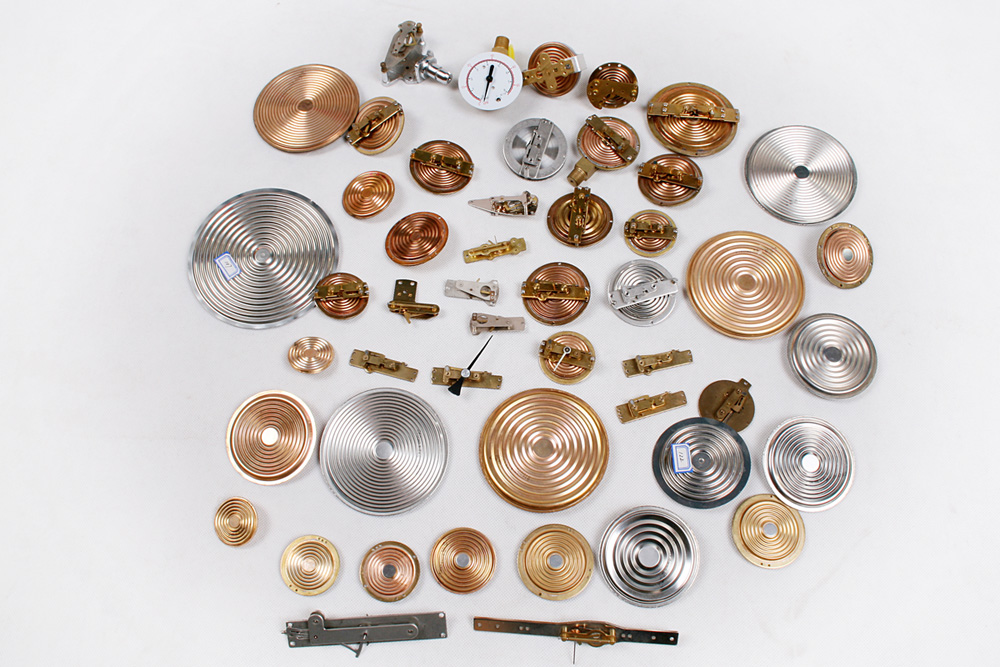
Oct . 12, 2024 20:22 Back to list
Exploring Customized Piston-Style Differential Pressure Gauge Solutions for Various Applications
Understanding Custom Piston-Style Differential Pressure Gauges
In the world of fluid mechanics and process control, accurate measurement of differential pressure is crucial for optimizing system performance and ensuring safety. One of the most effective instruments used for this purpose is the custom piston-style differential pressure gauge. These gauges are designed specifically to meet the unique requirements of various applications, providing unparalleled precision and reliability.
What is a Differential Pressure Gauge?
A differential pressure gauge measures the difference in pressure between two points in a system. This measurement is essential in various industries, including oil and gas, water treatment, pharmaceuticals, and HVAC systems, where monitoring pressure differences can indicate equipment performance, fluid flow rates, and the overall health of the system.
The Piston-Style Mechanism
The piston-style differential pressure gauge operates on a simple yet effective principle. At its core, it consists of a piston housed within a cylinder. When pressure is applied to either side of the piston, the difference in forces acting on the piston results in a movement that can be translated into a measurable reading. The gauge typically incorporates a spring mechanism that helps return the piston to its original position once the pressure is released.
What sets the piston-style gauge apart is its ability to provide high levels of accuracy and sensitivity even in challenging environments. The design allows for minimal friction and wear, leading to longer operational lifetimes and reduced maintenance needs, which is particularly advantageous in industrial applications.
Advantages of Customization
One of the key benefits of piston-style differential pressure gauges is the opportunity for customization. Different applications require different specifications, which include
custom piston-style differential pressure gauges

1. Material Selection Depending on the medium being measured and the environmental conditions, different materials may be selected for the piston, cylinder, and casing. For example, corrosive fluids may necessitate the use of stainless steel or specialized alloys.
2. Size and Scale Custom gauges can be sized appropriately for the installation location and can feature various pressure ranges, ensuring that they are suitable for both low and high-pressure applications.
3. Accuracy and Calibration Custom gauges can be calibrated to specific gradients and tolerances, providing users with the most accurate readings for their unique systems.
4. Connection Types The gauge can be designed with specific connections or fittings that match existing piping or tubing, facilitating easy integration into current systems.
5. Temperature and Pressure Ratings Each application might have different operational conditions. Custom piston-style gauges can be designed to withstand high temperatures or extreme pressures, catering to the needs of industries like petrochemicals or power generation.
Applications of Piston-Style Differential Pressure Gauges
Custom piston-style differential pressure gauges find applications in numerous sectors. In HVAC systems, they are used to monitor air filter performance and ensure optimal airflow. In the oil and gas industry, they can measure pressure differentials in pipelines and equipment to prevent leaks and ensure safe operation. Similarly, in water treatment facilities, these gauges help in monitoring pressures across filtration systems to ensure efficiency and compliance with health regulations.
Conclusion
Custom piston-style differential pressure gauges represent a pivotal technology in effective fluid measurement and pressure control. Their unique design and customization options make them suitable for a wide array of applications across various industries. By accurately measuring pressure differences, these gauges not only optimize system performance but also enhance safety and compliance. Understanding their functionality and benefits is essential for industries looking to improve their operational efficiency and reliability. As technology advances and industries evolve, the importance of precise pressure measurement will continue to grow, positioning custom piston-style differential pressure gauges as a key instrument in achieving these goals.
-
AG Precision Pressure Gauges High Accuracy & Global Exporters
NewsMay.21,2025
-
Ashcroft Diaphragm Pressure Gauges Precision & Durability
NewsMay.21,2025
-
Micro Differential Pressure Gauges High-Precision & Compact Solutions
NewsMay.20,2025
-
Pressure Gauges with Diaphragm Seals High-Accuracy & Corrosion-Resistant
NewsMay.20,2025
-
Capillary Type Differential Pressure Gauge Precision Measurement Solutions
NewsMay.19,2025
-
Diaphragm Seal Pressure Gauges High Accuracy & Corrosion Resistance
NewsMay.19,2025
